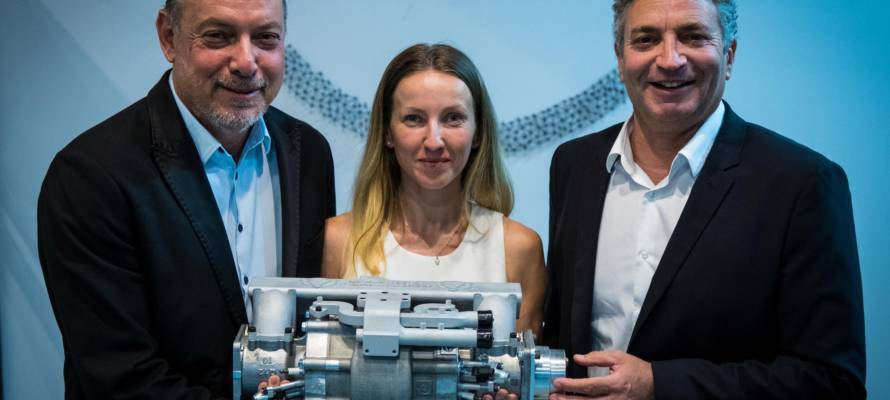Israeli startup Aquarius Engines partners with international telecom giant Nokia to help put its revolutionary generator design out in the field in Asian locations that are off the grid.
By Yakir Benzion, United With Israel
An Israeli startup wants to light up the lives of people who live in areas where there is no electricity supply using their new generator technology that is smaller, stronger and more reliable.
Aquarius Engines works out of the small city of Rosh Haayin, about 14 kilometers (9 miles) east of Tel Aviv where co-founders Shaul Yaakoby and Gal Fridman are producing a revolutionary linear engine that weighs only 10 kilograms (22 pounds).
Yaakoby’s revolutionary internal combustion engine design powers a generator using linear rather than the traditional circular motion. A single single piston rod moves back and forth between two engine heads, and while it uses traditional fossil fuels like diesel, gasoline or propane, it produces the same power in a phenomenally smaller package and doesn’t need lubricating oil – meaning fewer visits by a technician are needed.
For non-mechanical engineers the benefits are clear: the Aquarius is a much smaller, lighter and more efficient engine using only a couple of dozen parts compared to 150 to 200 parts in a regular small engine.
While a normal 16 Kw (kilowatt) generator weighs just over half a ton (570 kilograms or 1250 pounds), Aquarius says with the new engine their generator weighs only 100 kilograms (220 pounds), is a fifth the physical size and runs five times longer between maintenance than a traditional generator.
This week the company signed a deal with Nokia, the Finnish multinational telecommunications and consumer electronics company, to begin field tests of the Aquarius generator in the Philippines this year. Aquarius says its generator is the perfect solution to bring electricity to remote populations and telecommunications centers. The field testing will help smooth out any final changes needed as the company gears up for mass production, company chairman Fridman said.
“This is one huge step towards lighting-up corners of the earth where people have not yet been privileged to live with power until now,” Fridman said. “It is so lightweight and easy to maintain that it could rapidly change the lives of millions of people in a very short time.”
The Israeli “technology enables us to open huge markets that were once totally off-limits,” said Stuart Hendry, Nokia’s vice president for Asia-Pacific. “We will have the ability to supply power to those residing in extremely isolated areas such as remote islands, high in the mountains or deep in the jungle.”
Aquarius didn’t say exactly where the tests would take place, only that it was a Philippine island that is a two-hour boat ride away from the nearest grid connection where thousands of residents currently do not have access to electricity or clean drinking water.
“Installing an Aquarius Generator will transform thousands of lives, giving schools and medical clinics access to power, water filtration and refrigeration which will also enable local fisherman to preserve what they catch, feeding more people for longer,” the company said.
Founded in 2014, the company has received $31 million in investment so far and last year Aquarius signed a deal with Honda to help co-develop the engine used in the generator.
